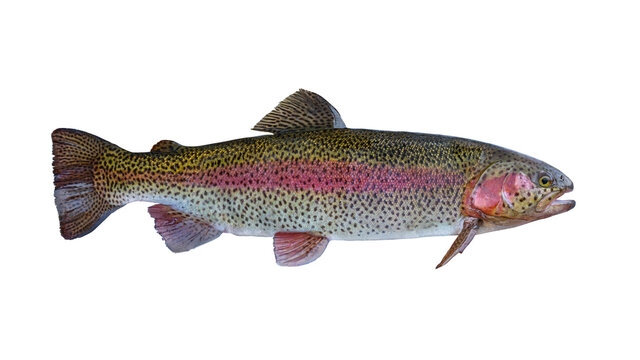Rainbow Trout Market Overview: Competitive Strategies and Regional Outlook in Global Aquaculture Industry

The global seafood market has seen a surge in demand for healthy, protein-rich options, and rainbow trout has emerged as a popular choice among consumers. Known for its mild flavor, nutritional benefits, and versatility in cooking, rainbow trout has gained a solid foothold in both domestic and international markets. However, with rising demand comes intense market competition. In this post, we delve into the competitive landscape of the rainbow trout market, analyzing key players, market dynamics, regional trends, and future opportunities.
Market Overview
Rainbow trout (Oncorhynchus mykiss) is a freshwater fish species native to North America but now widely farmed across the globe. It is favored for its fast growth, adaptability to various water conditions, and relatively low environmental impact compared to other aquaculture species. These factors have made it an attractive option for fish farmers and a staple in supermarkets and restaurants alike.
As of recent reports, the rainbow trout market has been growing steadily, with increasing demand from health-conscious consumers, growing aquaculture practices, and technological advancements in fish farming and processing. Yet, as the market expands, so does the competition.
Key Players in the Market
The rainbow trout market is moderately fragmented, with a mix of global corporations, regional players, and small-scale producers. Some of the most prominent companies competing in the market include:
-
Clear Springs Foods Inc. (USA)
One of the largest producers of rainbow trout in the United States, Clear Springs focuses on sustainable farming practices and premium-quality products. -
Troutlodge, Inc. (USA)
A world leader in trout breeding, Troutlodge provides genetically improved eggs to farms in over 50 countries. -
Lerøy Seafood Group (Norway)
Although primarily known for salmon, Lerøy has expanded into trout farming, leveraging its cold-water aquaculture expertise and global distribution network. -
Grieg Seafood (Norway)
Like Lerøy, Grieg Seafood has diversified into trout production, focusing on value-added products and sustainability. -
Others
Numerous smaller producers, particularly in countries like Iran, Chile, Italy, and Denmark, also hold significant regional influence and contribute to the global supply chain.
Competitive Factors
Competition in the rainbow trout market hinges on several key factors:
1. Product Quality and Differentiation
Producers compete on quality attributes such as texture, flavor, and freshness. Value-added products like smoked trout, fillets, or pre-seasoned varieties are gaining traction.
2. Sustainability and Certifications
With rising consumer awareness, companies that adhere to sustainable aquaculture practices and possess certifications such as ASC (Aquaculture Stewardship Council) or BAP (Best Aquaculture Practices) gain a competitive edge.
3. Supply Chain Efficiency
Efficient cold-chain logistics, processing facilities, and strong distributor networks are critical. Companies that streamline operations from farm to fork are better positioned to meet consumer demand consistently.
4. Innovation and Technology
Advancements in breeding, disease management, and feeding technologies are essential for maintaining competitive yields and reducing costs. Automation and AI-driven monitoring systems are becoming more common.
Regional Dynamics
The rainbow trout market is regionally diverse. Here's a breakdown of some of the leading regions:
-
Europe: Countries like Italy, France, and Denmark are major consumers and producers. The EU’s support for sustainable aquaculture has fueled market expansion.
-
North America: The U.S. and Canada have well-established trout farming industries. Demand is driven by health trends and the popularity of local, responsibly-farmed seafood.
-
Asia-Pacific: Rapid growth is occurring in China, India, and Iran, where investments in aquaculture infrastructure are increasing. Iran, in particular, has emerged as a global leader in trout production.
-
Latin America: Chile is a major player, leveraging its aquaculture prowess from the salmon industry to also include rainbow trout in its exports.
Challenges and Barriers
While the market is promising, competition is not without its hurdles. Disease outbreaks, water quality issues, climate change, and regulatory complexities can impact production and profitability. Moreover, market saturation in mature regions means companies must innovate or explore new markets to grow.
Future Outlook
Looking ahead, the rainbow trout market is expected to continue expanding, with a projected CAGR in the range of 5–7% over the next five years. Key growth drivers will include:
-
Rising global seafood consumption
-
Expansion of e-commerce and direct-to-consumer sales
-
New product innovations (e.g., trout-based pet food, supplements)
-
Increased investment in sustainable aquaculture technology
Final Thoughts
The rainbow trout market presents a fertile ground for both established players and new entrants. While the competition is fierce, there are ample opportunities for growth through innovation, sustainability, and strategic market expansion. As consumer preferences evolve and environmental concerns become more central to purchasing decisions, the companies that can combine quality with responsibility will be the ones to watch in this dynamic market.
- Industry
- Art
- Causes
- Crafts
- Dance
- Drinks
- Film
- Fitness
- Food
- Παιχνίδια
- Gardening
- Health
- Κεντρική Σελίδα
- Literature
- Music
- Networking
- άλλο
- Party
- Religion
- Shopping
- Sports
- Theater
- Wellness
- News


